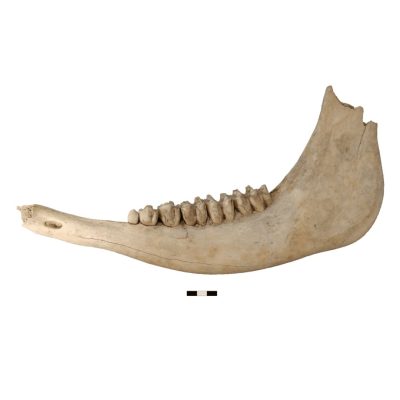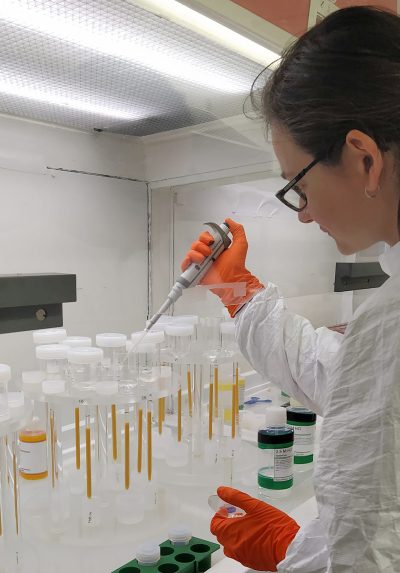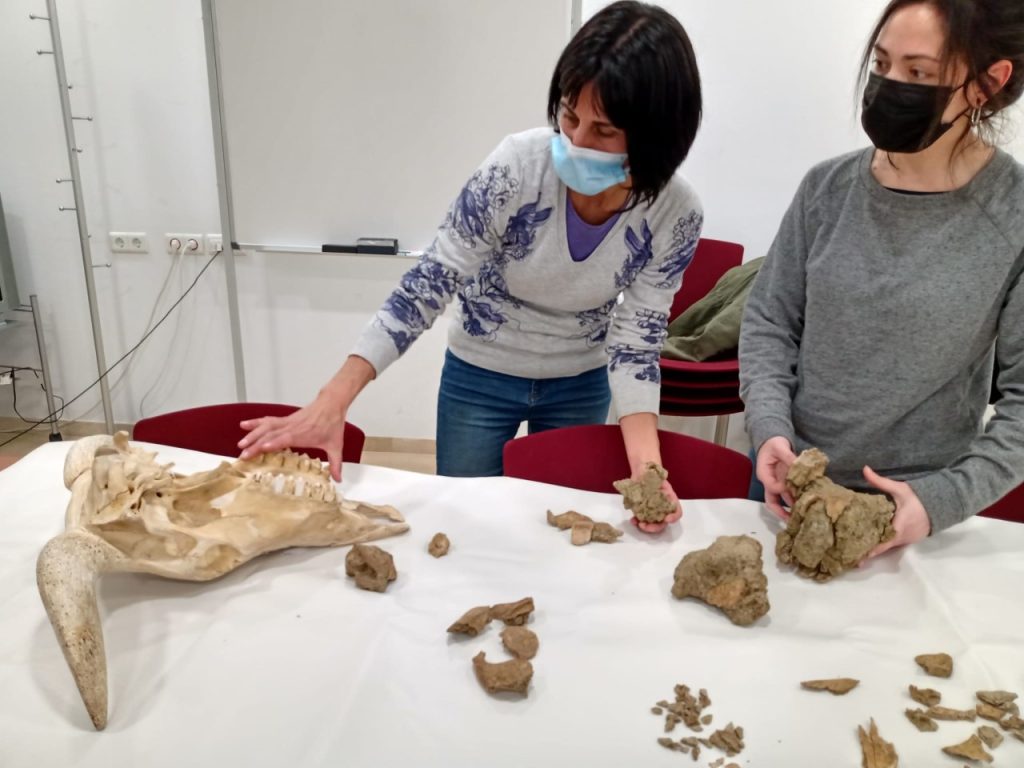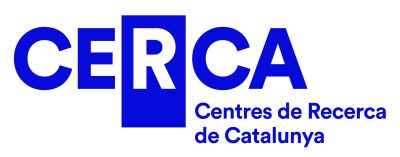
The Catalan Institute of Classical Archaeology (ICAC-CERCA) has signed a new collaboration agreement with the Palarq Foundation.
Dr. Lídia Colominas Barberà, from the GIAP research group, will lead a new project, “Seasonal Feeding Habits of Cattle at the Iron Age Site of Mas Castellar de Pontós (Girona, Spain),” under a fresh collaboration with the Palarq Foundation.
The one-year project will be co-directed by postdoctoral researcher Chiara Messana (UAB), who formerly worked with Colominas during her PhD, defended at IPHES in April 2024.
This resarch aims to shed light on cattle feeding strategies at the Mas Castellar de Pontós site (Girona). To achieve this, an isotopic sequential analysis (δ18O and δ13C values) will be carried out on the mineral fraction of the tooth enamel from the second and third lower molars.

This approach will make it possible to determine, for example, if cattle’s diet was supplemented with off-season forage to compensate for the seasonal limitations of pastures. Likewise, it will also reveal whether the integration of cultivated C4 cereals into the cattle’s diet at Mas Castellar de Pontós had a seasonal nature: a piece of fundamental information, as the use of fodder or seasonal integration of cereals implies a community organization and a different exploitation of the environment.
Therefore, the study promises to provide first-order data on cattle management by the Iron Age communities in the northeastern Iberian Peninsula and the interplay between livestock and agriculture. It will also contribute to expanding the limited biogeochemical data available for Iron Age chronologies in the Iberian Peninsula.
We extend our best wishes to our colleagues Colominas and Messana for a successful project and thank the Palarq Foundation for their support!

About the Catalan Institute of Classical Archaeology (ICAC-CERCA)
The Catalan Institute of Classical Archaeology (ICAC-CERCA) is a CERCA center established as a consortium in 2003 by the Government of Catalonia and the Rovira i Virgili University. It is a Catalan institution with an international scope, at the forefront of research and conservation of archaeological heritage. Its headquarters are located in Tarragona, a city recognized as a UNESCO World Heritage Site in the year 2000. Its researchers work to understand the past through the study of archaeological remains and promote the preservation of the historical legacy. We are CERCA!
For more information, visit www.icac.cat.






